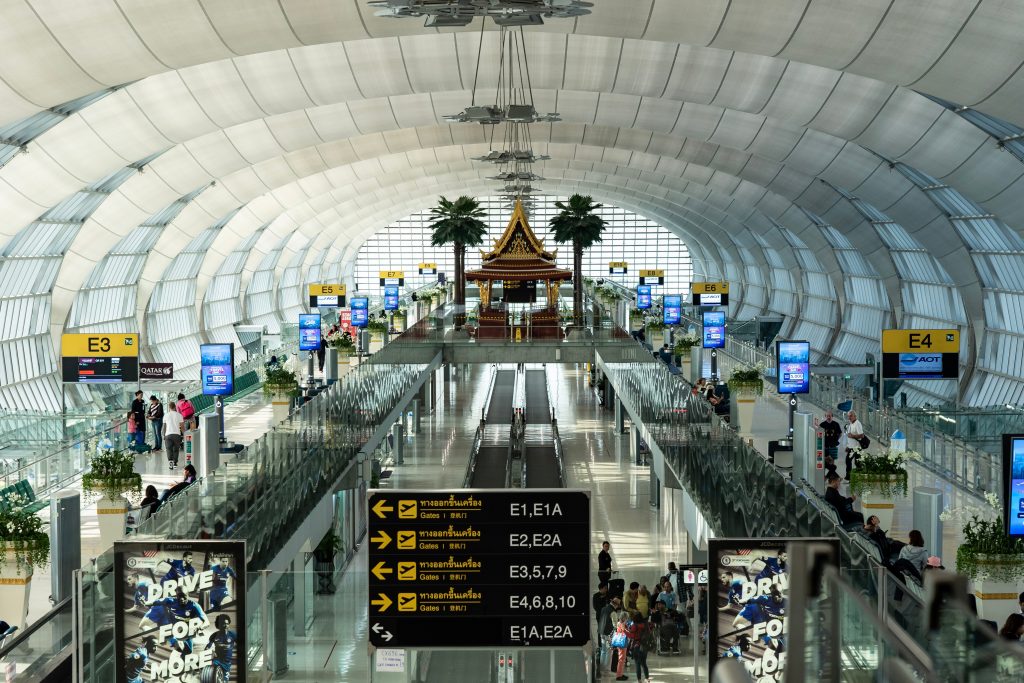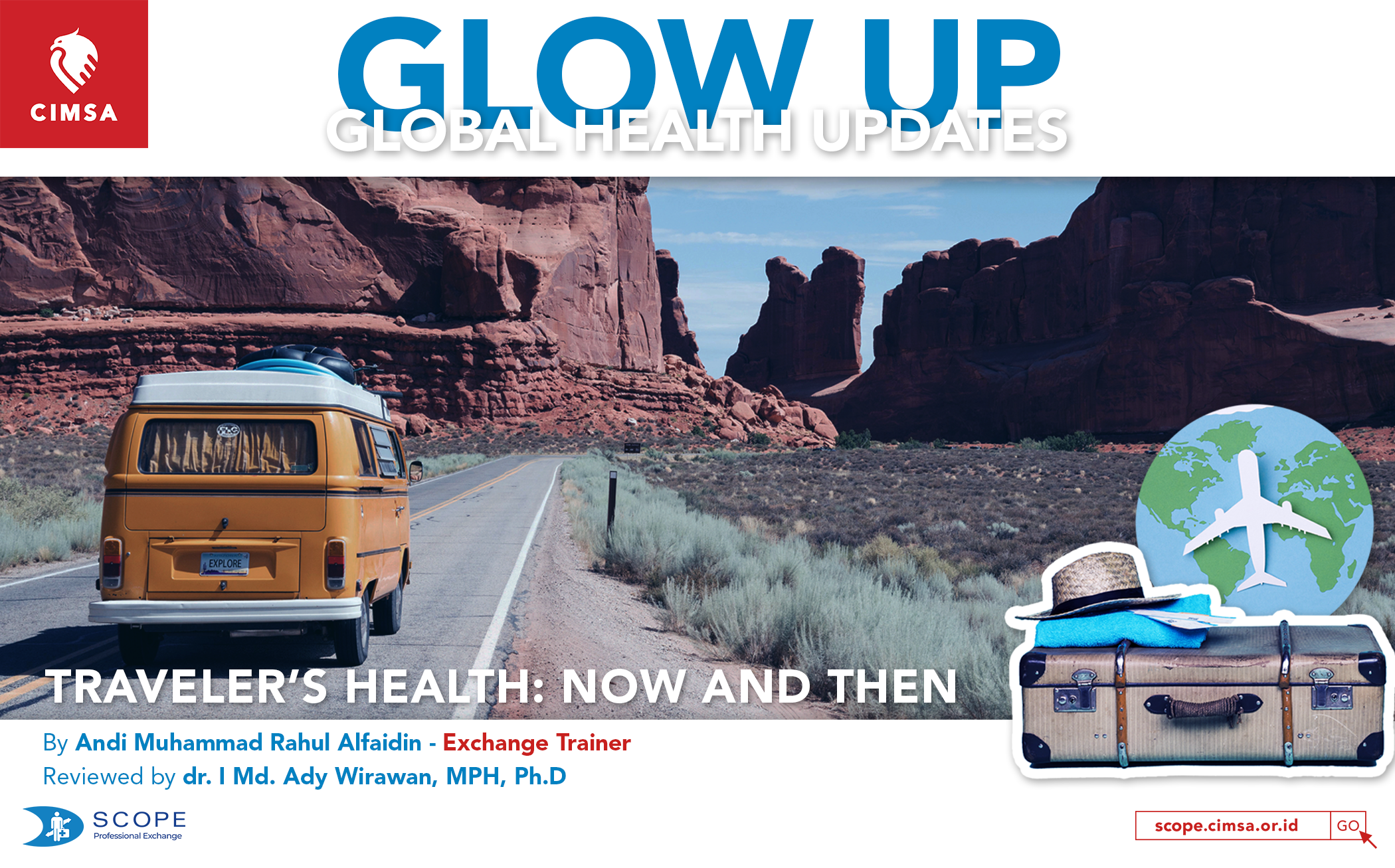
According to the World Tourism Organization (UNWTO), there were 1.5 billion international tourist arrivals recorded in 2019. Looking at the previous year in 2018, where the number marked 1.4 billion people, it is obvious that international traveling grows in such a fast-moving trend. People travel for numerous reasons – from holidays, visiting friends or relatives, health or religious purposes, business and professional matters, and many more. As medical students ourselves, we are also exposed to international travel from opportunities, for instance through having student exchange programs.
Undoubtedly, international travel has shown significant contributions to the world at large; from giving personal satisfaction one could get from the experiences of visiting destinations until supporting the global economy. Hence, of course, there are always two sides to the coin. One of the most crucial aspects of our life that are affected by traveling is health.

International travel can increase risks to personal health and well-being, depending on the characteristics of both the traveler and the travel program itself. Although there are many possible ways to seek medical services when traveling, it remains the traveler’s responsibility to look for information about the risks when planning a travel program, particularly to unfamiliar, distant, or remote areas.
According to World Health Organization (WHO), there are several key factors that help travelers and medical professionals to identify health risks of international travel, such as mode of transport, destination(s), duration and season of travel, the purpose of travel, standards of accommodation, food hygiene and sanitation, the behavior of the traveler, and underlying medical condition of the traveler.
Moreover, the traveler can also encounter various risks depending on the destination, including altitude, heat and humidity, microbes, animals and insects, injuries from an accident or recreational activity, inadequate medical services, psychological health including stress and culture shock, and more. Determining and finding reliable information about these risks will help the travelers to take appropriate precautions before starting a trip and ensure a plan that can take place anytime where there are health-related situations.
Traveler must always be aware of their health conditions before, during, and after the travel. What traveler can do before the travel is getting vaccinations to prevent from various infectious diseases, finding information about local diseases in the destination, preparing medications for underlying health issues or emergency needs, purchase medical insurance with appropriate cover abroad, and if possible – get a medical and dental check-up. During the travel, travelers must ensure to always eat thoroughly-cooked foods and always alert for accidents or health-related problems.

Looking at the situation in the present, traveling right now is about as hard it’s going to get. On 11 March 2020, WHO declared a global pandemic on Coronavirus Disease 2019 (COVID-19) that is caused by the virus SARS-CoV-2. Since that day, the world has been impacted greatly from many different aspects, including international travel. As of now, the Centers for Disease Control and Prevention (CDC) advised people that it is best to stay at home because travel increases the chances of getting and spreading COVID-19.
CDC recommends travelers to avoid all non-essential international travel to countries with high COVID-19 risk. Some examples of essential travel include humanitarian aid works, family emergencies, or medical reasons. Before the travel, there are some considerations to think about: “how is the COVID-19 risk in the destination?”, “Is the traveler at the category of increased risk of severe illness from COVID-19, like the elderly and people with underlying medical conditions?”, and “What are the requirements and restrictions for travelers in the following destination?”.

Different countries have a different approach to the regulations of international travel to and from their countries, thus travelers must seek information to prepare beforehand. The chances of getting COVID-19 while traveling also depends on our behavior to protect ourselves and people around us, such as always wearing a mask, avoid gathering in crowded places, regularly washing hands with soap or hand sanitizer, avoid touching eyes, nose and mouth, and making sure to consume a healthy diet.
Back then, international travel was not so complicated. However, in a pandemic where we are unsure of when the restriction will end, there are many things to consider before going on a travel. One would think that COVID-19 will ignite fear in travelers due to the possibility of getting infected. But sadly, because of the loose regulations in some countries, people still go to travel solely for recreational purposes and neglecting all the risks of getting and spreading COVID-19. One thing for sure, if there are absolutely no urgent reasons to travel in this pandemic, just stay at home.
Resources:



